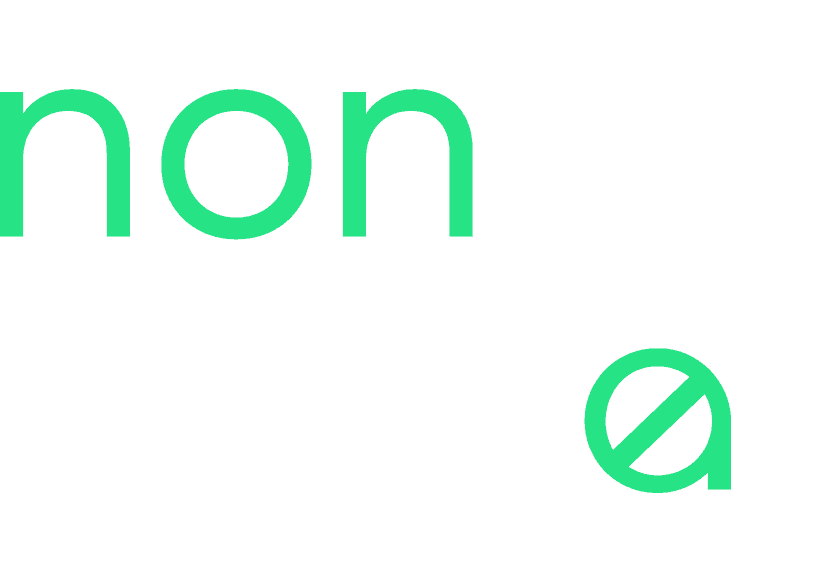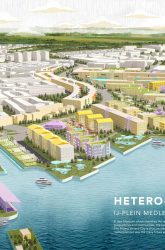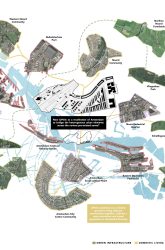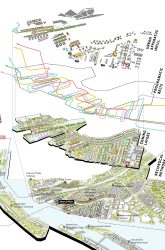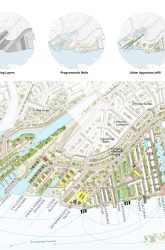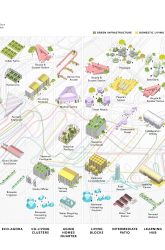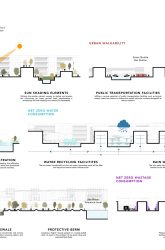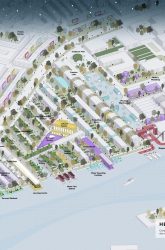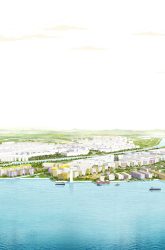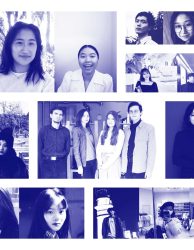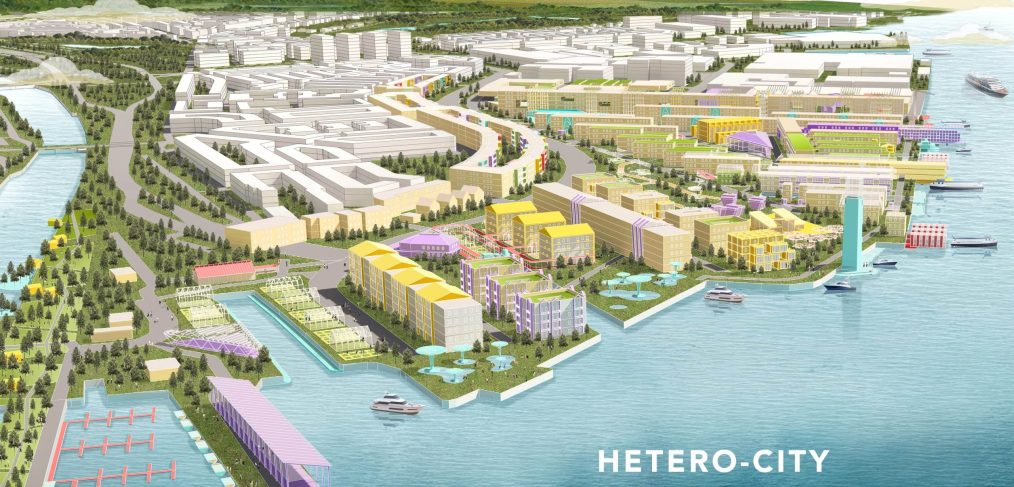
Hetero-City – Ij-Plein Medley Future Blueprint
Team
Name: Chai Yi Yang
Nationality: Malaysian
Institution / Company: Arch.yiyang https://archyiyang.com/
Instagram: https://www.instagram.com/arch.yiyang/
LinkedIn: https://www.linkedin.com/in/yi-yang-chai-4619a1160/
Name: Ng Yi Ming
Nationality: Malaysian
Instagram: https://www.instagram.com/arch_of_nym/
LinkedIn: https://www.linkedin.com/in/ngyiming96/
-BEST PROJECT of Community 2050 Competition | Category: Professional
How would our future city take shape upon the turbulent shift of socio-technological landscapes and emerging ecological concerns nowadays? The project explores a heterogenous approach to encapsulates the sociology, ecology, economy, mobility, and technology concerns in the context of Amsterdam.
Amsterdam as a multifaceted city, is a conjunction between formal and informal programs where the manifold context and communities pioneer. The city is a wonder of diversity and vibrancy. Located North to the Amsterdam city centre, the selected site Ij-Plein is sandwiched between the city’s riverfront edge and Noord which is often perceived as leftover part of the city. While seeking for the possibilities of reinstating the Ij-Plein to bridge the greater Noord to the Amsterdam city centre, we are wondering its urban potential to become a forefront for future communities in Amsterdam.
Responding to the urban heterogeneity of Amsterdam, the Hetero-City proposal is a projection of the inherent urban traits of Amsterdam city centre to the Ij-Plein quarter, imagining it becomes a revitalizing portal to channel the programs and communities between Noord and Amsterdam city centre. By montaging myriad of robust urban program from Amsterdam city centre and Noord, the prefigurative mapping for a heterogenous program framework is curated. Orchestrated under such framework, the Ij-Plein is reactivated with a broad spectrum of various urban instruments within a regenerative blueprint.
The blueprint is composed by a series of urban gestures: [1] the Ij-Plein site is layered into a continuum of thematic zones complementing its existing urban morphology; [2] the zones are stitched together through programmatic belts to form territories for green infrastructures, domestic living, aquaculture, economic commune, and mobility; [3] new urban regenerative apparatuses are infilled to overlay a new urban ecosystem onto the Ij-Plein masterplan. Of five fundamental colours to be visualized as spinal programs of Hetero-City, their rendezvous creates million hues of possibilities.
Whereas the zoning layers coating the Ij-Plein site comprehend the themes, functions, and spatial language distinctively into 12 continuous sections. They include urban oasis, festive estuary, communal wharf, monastic marketplace, co-living collectives, retiring home clusters, living blocks, intermediate yard, learning hub, artisanal pier, cultural nave, and innovative port. Navigating through these sections suggesting an intriguing journey, experiencing the many layers of Amsterdam’s vibrancy within a 15-minutes walk. It captures the serial visions of the city and its essence within a seamless yet appealing transition.
Considering the Hetero-City as a program-centric scheme, the planning framework laid across Ij-Plein is not rigid rules but strategized to allow natural growth of socioeconomic and cultural dynamism. The mixing of programs and communities empower the seeding of micro-economic activities, polycentric attractions, and productive landscapes- which eventually shape the circular economy around the site. Adhering to the multi-layered programs of Amsterdam, a reciprocal network to be shared between Noord and Amsterdam city centre is cultivated for years to come.
Essentially, the overlaid blueprint is expected to be an organized complex with rich programmatic framework which grows parallel to the future community and rapid fluxes. It should be a common ground inclusive for urban dwellers, young entrepreneurs, senior citizens, digital nomads, tourists, and any kind of emerging societal forms. Placed under a holistic vision, the future Amsterdam is envisioned to be a thriving place of symbiosis between culture and nature, technology and ecology. The Project Hetero-City is thus, an urban driver embraces not only the past legacies of Ij-Plein masterplan but also the many future endeavours that aligns with its memory lane.
#Melting Pot of Future Socio-cultures Medley #Heterogenous Programmatic Framework #Urban Regenerative Instruments #Circular Economy & Urban Ecosystem #Environmental Sustainability & Resiliency
Jury Comments
– Alain Chiaradia
Medley City multi-scalar and manifold infill approach cultivate a common ground that is intensifiedby ubiquitous mixed use/landscape programmatic lifelines that intertwine land and water age group.Social and urban physics resilience is promoted across the landscape and resources promoting therequirements of future communities.
– Vicente Guallart
Through a rigorous and detailed analysis of circulation corridors, overlapping ecological boundary conditions and natural infrastructures, this project proposes an interwoven and adaptive vision for a more bioigically sensitive urban condition. The integration of multifarious contexts and non-human existences in this project is admirable, simultaneously understated and utopic.
– Zhang Yuxing
A very comprehensive and comprehensive community scene design, shaping the vitality of the site with tiny locations.
